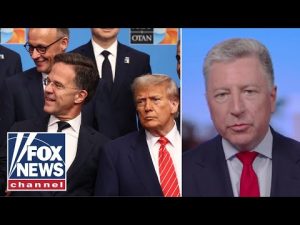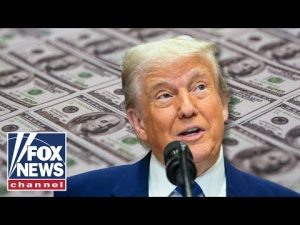Since taking on the mantle of Secretary of State, major reorganizations have unfolded within the State Department. Critics might call it a shake-up, akin to rearranging the deck chairs on a sluggish bureaucratic Titanic, but the reality is more akin to whisking away the dust and opening up the curtains to let the light in. The focus has been on streamlining processes, cutting through the relentless red tape that has long bogged down the Department’s efficiency. With unnecessary positions totaling around 1,300 out of an approximate workforce of 60,000 being thinned out, the new face of American diplomacy is set on expediting decision-making. It’s a move that doesn’t just eliminate redundancy but reduces the agonizing wait that comes with clearing memos through a seemingly infinite number of desks. The goal is to bring the whole decision-making affair into the modern era where urgency is more than just a buzzword.
In the realm of international diplomacy, one saga that ostensibly never runs out of plot twists is the Russia situation. President Trump, with the patience of a hungry hawk, has given Russia a 50-day window to strike a peace deal or face the potential economic impact of a 100% tariff. For anyone doubting if this approach could stir Putin into action, it’s a reminder that the current occupant of the Oval Office views negotiations as a sport—and he’s always playing to win. President Trump, who didn’t sow the seeds of this war but inherited its consequences, is hitting the political stopwatch. Waiting for Russia to make the first move is no longer on the table, and it seems that even Putin’s phone conversations with the U.S. President leave much action to be desired. For Trump, it’s high time for actions to replace words, and the clock is ticking louder than ever.
As for the international trifecta of tension—Russia, China, and Iran—it seems handling these nations is like juggling flaming swords. China silently backs Russia, no surprises there for anyone keeping score, chiefly by purchasing oil and sidling them aid just under the radar. It keeps them in a convenient position where they can maintain influence over Middle Eastern dynamics while subtly keeping global eyes fixed elsewhere. By not engaging directly, they’re playing a risky yet calculated game, banking on prolonged entanglements to divert U.S. focus. Iran, ever the wild card, stands in the mix but cautiously considering its next move, especially post a dramatic display of U.S. military prowess that reminded everyone just who holds the upper hand.
In more diplomatic domains, dealings with China offer a mixed bag. The two global giants, like it or not, must find common ground somewhere between friction over trade and existing agreements. Despite the marketplace imbalance, where for many years China got the better deal, the U.S. is beginning to push back under Trump’s leadership with the finesse of a longstanding businessman who’s decided to call in his dues. It’s high time for negotiation reboots, especially when it comes to trade fairness, even if several contentious issues remain in play.
Meanwhile, hostage exchanges and prisoner swaps are seeing a notably different approach. Gone are the days of bartering with Americans as pawns on an international chessboard. A recent maneuver involving El Salvador and Venezuela reflects a zero-tolerance policy for hostage diplomacy under Trump. Past concessions are now simply off the table, and those who think otherwise find themselves sorely mistaken. Just take a glance at the Venezuelan players—members of politically influential gangs returned to their home countries without significant congressional trade-offs. Firm stances convey a simple message: The United States will not be strong-armed by those trying to leverage the lives of American citizens as bargaining chips. It’s a decisive step toward ensuring that America’s strength and resolve remain crystal clear to both allies and adversaries alike.







